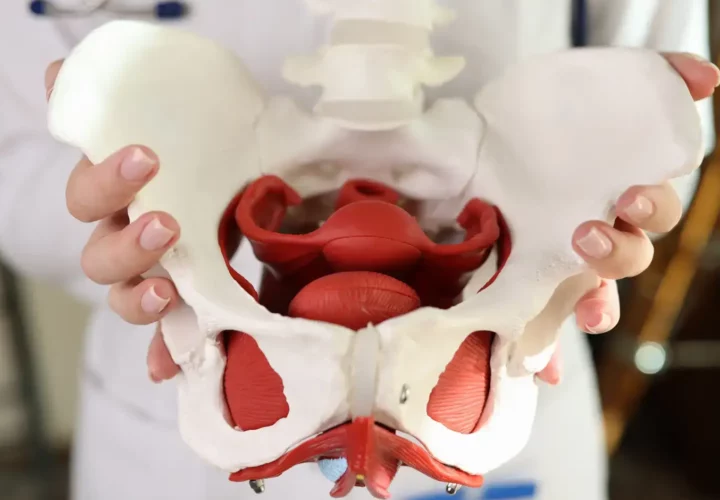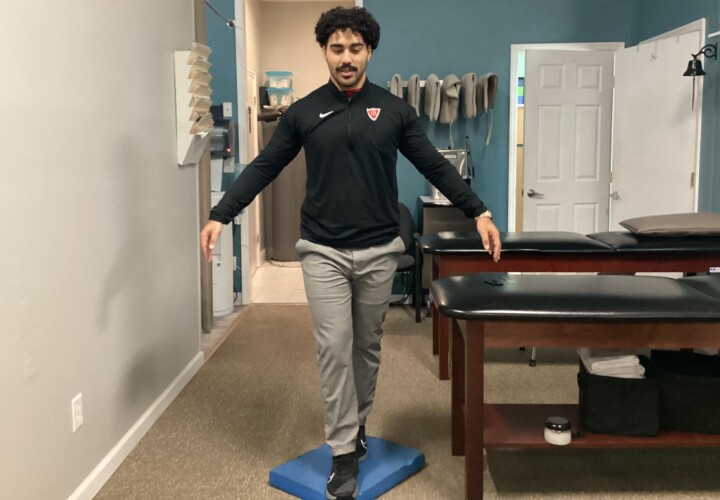Lupus, also referred to as “The Disease of 1000 Faces” is a long-term autoimmune disease. What happens is your bodys immune system becomes hyperactive and normal healthy tissue is attacked. It is referred to “The Disease of 1,000 Faces” because of its very complex nature. According to the Lupus Foundation, 16,000 new cases are reported each year with up to 1.5 million people living with the condition.
Types
There are several different types of Lupus, all of which are very unique.
Systemic Lupus Erythematosus
Abbreviated as SLE, this is the most common type of lupus. Because it is a systemic condition, it has an impact throughout the whole body and symptoms range from mild to severe. Inflammation in the skin, joints, lungs, kidneys, blood, heart, or a combination of all can occur.
Discoid Lupus Erythematosus
DLE also called cutaneous lupus, has symptoms that only affect the skin. A rash may appear on the face, neck, and scalp. Raised area of the rash can become thick and scaly and scarring may occur. The rash can last for a few days or years and can reoccur. While DLE does not affect internal organs, 10% of people affected will develop SLE as talked about above.
Subacute Cutaneous Lupus Erythematosus
This type of lupus refers to skin lesions appearing on parts of the body that are exposed to the sun. These lesions will not leave scarring.
Drug Induced Lupus
Approximately 10% of those with SLE, symptoms occur because a reaction to certain prescription drugs. From what is known, about 80 drugs may cause this condition. Some of these medication are used to treat seizures and high blood pressure. Some thyroid medications, antibiotics, antifungals, and oral contraceptive pills are included too. Once the person stops taking the medication, typically the condition will go away.
Neonatal Lupus
While most babies born who have mothers with SLE are healthy, about 1% of women with autoantibodies relating to lupus will give birth to a baby with neonatal lupus. At birth these babies may have a skin rash, liver problems, and a low blood count. About 10% of these babies will have anemia. If a mother has SLE or another related autoimmune disorder, it is important for them to be under a doctors care the entire pregnancy.
Causes
While the exact cause is unclear, researchers know a little about what exactly “goes wrong”. Your immune system protects your body fighting off viruses, bacteria, and germs. To do this, your body must produce proteins called antibodies which come from white blood cells or B lymphocytes. With an autoimmune condition much like lupus, your immune system cannot tell the difference between unwanted substances/antigens and healthy tissue. Because of this, your immune system will direct the antibodies against the healthy tissue and antigens. In return this causes swelling, pain, and damage to the tissues.
In those with lupus the most common type of autoantibody is antinuclear antibody or ANA. ANA reacts with parts of the cell’s nucleus and circulates in the blood. The body also has some walls permeable enough where ANA can go through them. Once through the wall, the ANA can then attack the DNA in the nucleus of the cells. This is why some organs are affected and some are not.
Immune System Goes Wrong
There are a variety of things that influence the development of SLE. While some genes in the body helps the immune system function, those with SLE, their genes may stop the immune system from functioning properly. A possible theory researchers have found relates to cell death. This is an all natural process that will occur as the cells are renewed in the body. However, some scientists do believe because of genetic factors the body will not dispose of cells that have died. Because of this, the dead cells may release substances that can cause a malfunction in the immune system.
Risk Factors
- Hormones
- Sex
- 9 out of 10 people affected by lupus are females.
- Age
- Sex
- Genetic Factors
- Race
- While everyone can develop lupus, it is 2-3 times more common in people of color. It is also more common in females who are Hispanic, Asian, and Native American.
- Family History
- Race
- Environment
- Smoking
- Exposure to Sunlight
- Medications
- Viral Infections
- Lupus is not contagious. However, viral infections may trigger symptoms in those who are prone to SLE.
- Gut Microbiota
Symptoms
- Fatigue
- Loss of appetite and weight
- Swelling or pain in the joints and muscles
- Swollen glands, or lymph nodes
- Skin rashes, due to bleeding under the skin
- Mouth ulcers
- Sensitivity to the sun
- Fever
- Headaches
- Chest pain upon deep breathing
- Unusual hair loss
- Pale/purple fingers or toes from stress or the cold
- Arthritis
Diagnosing
Because of the range of symptoms, diagnosing lupus can be hard. Your doctor will ask you a multitude of questions involving your symptoms, personal and family history, and do a thorough physical examination. Also, some blood tests and other laboratory investigations may be done. These tests may include:
- Biomarkers
- Blood Tests
- Antinuclear Antibody
- Antiphopholipid Antibodies
- Anti-DNA Antibody Test
- Anti-dsDNA Antibody
- Anti-Smith Antibody
- Anti-U1RNP Antibody
- Anti-Ro/SSA and Anti-La/SSB Antibodies
- Anti-Histone Antibodies
- Serum Complement Test
- Urine Test
- Tissue Biopsies
- Imaging Tests
- Monitoring Tests
Treatment
While there is no cure for lupus, people have been able to manage their symptoms and flares with some lifestyle changes and medication. Treatment will help prevent and manage any flare ups and reduce your risk of any organ damage. Medication will help to reduce pain/swelling, regulate your immune systems activity, balance hormones, reduce or prevent joint/organ damage, manage your blood pressure, help reduce risk of infection, and lastly control your cholesterol. Without treatment your flareups can occur and may have life-threatening consequences.
Alternative/Home Remedies
Besides medication, there are things you can do for yourself to help manage your condition. These include:
- Applying heat/cold
- Participating in relaxation or meditation activities. This could be yoga or tai chi. Here at Hohman Rehab we have a great Youtube channel and Facebook page where you can find our online yoga and tai chi classes at.
- Doing regular exercise when possible
- Avoid exposure to the sun
- Try and avoid stressful situations
In past years, those diagnosed with lupus have not typically survived longer than 5 year. But treatment and lifestyle changes help significantly increase a persons lifespan. As researchers are still learning more about lupus, it will make identifying it easier at earlier stages and could possibly help prevent major complications.



